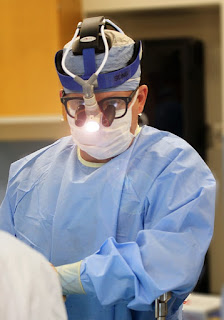What Does a General Surgery Residency Cover?
In order to become a licensed and practicing surgeon, it is necessary to complete a general surgery residency, which will provide you with the knowledge and ability to diagnose, prepare, operate on, care for post-op and potentially manage any complications for patients. This residency is an opportunity to focus on understanding and embracing the physiology and anatomy of the human body, plus wound healing, intensive care and immunology, among other things. This type of program is the final step into obtaining the license to perform surgical procedures of many types, and a surgery residency DC is highly recommended by many different currently licensed professionals.
What to Expect from a General Surgery Residency
During a general surgery residency Georgetown, you’ll be prepared to deal with and contribute to many different medical situations. The entire program is created and run with the idea that every situation - from classes to procedures to patient interactions - is a learning experience for the residents, giving them a chance to improve their skills and abilities each moment that they are on campus or in a medical facility. This isn’t about simply producing surgeons with proven skills, but about creating confident leaders and reliable professionals with a great deal to give back to the medical community as well as the communities that they operate within.
The graduates of the general surgery residency Georgetown program are highly sought after in the medical field, partially due to the fact that the training is so extensive that many residents will have already completed work and procedures that are often designated for fellowship programs - meaning that graduates of this program are often capable of advanced diagnostic skills and procedural performance. Though this might seem daunting to those thinking of applying, this has the potential to cut back on additional learning time and trouble if the decision is made to pursue a fellowship either through the same organization or with a different one.
This is a highly competitive field, and the residency program only accepts five individuals each year, meaning that the groups will be small, with an emphasis placed on individual progress and learning. The ultimate goal is to train those who will be tasked with becoming the country’s future surgical leaders - in essence, producing graduates that other surgeons would feel comfortable allowing to perform procedures on their family and other loved ones. This level of trust and skill says a great deal about the general surgery residency program’s expectations, as well as the past success rate and participant quality.



